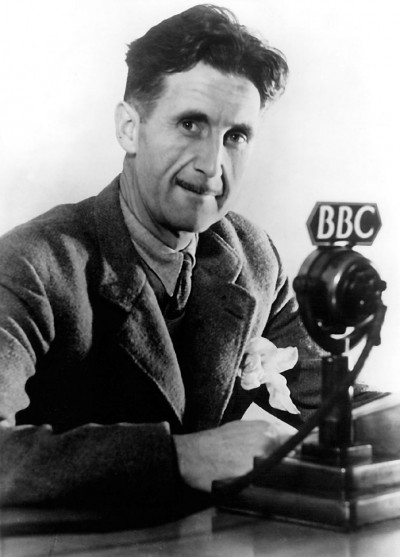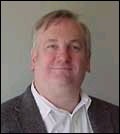Orwell’s “Politics and the English Language” in the Age of Pseudocracy
TACOMA, Wash. – The co-authors of a new book about George Orwell’s iconic Politics and the English Language would have it that we readers completely missed the point.
Hans Ostrom and William T. Haltom tell us that we have been dangerously distracted, with our mean smiles and guffaws at Orwell’s mockery of the language of bureaucrats, politicians, and others that we hate. They tell us that this 1946 essay that teachers hope will rid us of sloppy and decadent language has a far more ominous message.
A good look around today suggests that the two University of Puget Sound professors who wrote Orwell’s “Politics and the English Language” in the Age of Pseudocracy (Routledge, March 2018) may be right.
They argue that our focus on Orwell’s tips for good writing “detracts from Orwell’s most terrifying and compelling general portents. Politicos misuse language to make lies sound truthful and murders seem respectable.”
Orwell’s “Politics and the English Language” in the Age of Pseudocracy is written by Professors Hans Ostrom, published poet, novelist, and professor of English; and William T. Haltom, the writer behind three books and professor of politics and government. Their aim, they say, is to rescue Orwell’s obscured major point: “that politics corrupts language, which then corrupts political discourse further, and so on.” It is this—the corruption of power, position, and prominence—that Orwell wants us to pay attention to.
Our age is described by the authors as a pseudocracy—meaning that shams, pretenses, and mendacity dominate political language and public discourse on politics. They blame public relations, political image-makers, consumer culture, mass education, and mass media for widespread apathy, inattention, and sensationalism. It is enough to make you worry.
The highly engaging and readable book goes further than just analyzing Orwell’s intent, secreting his wisdom, and mourning his limitations. The authors ambitiously try to rescue today’s “credulous audiences, who expect fantasies and abhor facts” and the increasingly distrustful audiences who no longer know what to believe.
They attempt to pull us out of this quicksand by transforming Orwell’s diagnoses and prescriptions into resources for a 21st-century audience. Our rescue, however, is one we have to work for.
They propose actions we can take: from analyzing if you yourself are an easy target, to checking for references and factuality, to avoiding sound bites, to demanding that content providers check sources’ veracity, to teaching students to battle mendacity.
Their implorations are brutal, they use humor like a knife and language like the weapon they want us all to wield. They write, “We exhort readers to zealously, jealously guard the ideas and inferences that they deem knowledge and, when in doubt, push propositions back into the zone of opinion.” It is a good battle, it is an important battle, and what can I say: Read this book.
Hans Ostrom is professor of African American Studies at University of Puget Sound (Tacoma, Wash). Previous publications include A Langston Hughes Encyclopedia; Honoring Juanita: a Novel; and Metro: Journeys in Creative Writing, written with Wendy Bishop and Katharine Haake. With J. David Macey, he edited the five-volume The Greenwood Encyclopedia of African American Literature. He taught as a Fulbright senior lecturer at Uppsala University in Sweden and also taught at Johannes Gutenberg University Mainz, in Germany.
William T. Haltom, professor of politics and government at University of Puget Sound, teaches courses in politics and law. He is author of Reporting on the Courts: How the Mass Media Cover Judicial Actions. He is co-author of Distorting the Law (Chicago 2004) and "The Laws of God, the Laws of Man: Power, Authority, and Influence in ‘Cool Hand Luke,’ " in Legal Studies Forum (1998).
Press photos of the authors and the book cover can be downloaded from pugetsound.edu/pressphotos.
Photos on page: From top right: Book cover; George Orwell at the BBC, 1940 (public domain photo); the two authors
Tweet this: Politics corrupts language; Language corrupts politics. New book by @univpugetsound profs Hans Ostrom, William Haltom rethinks #Orwell intent in “Orwell: ‘Politics and the #English Language’ in the Age of Pseudocracy.”
Follow us on Twitter! twitter.com/univpugetsound





